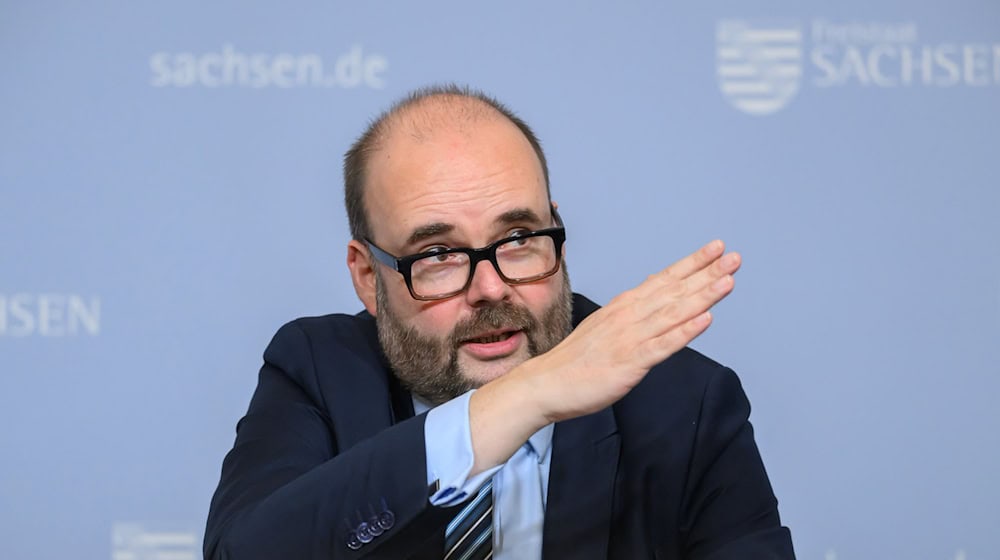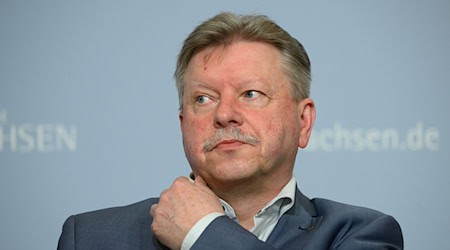The tax estimate for Saxony is contradictory. While the state can expect a total of 121 million euros more in 2025 and 2026 compared to the last forecast last fall, the municipalities are expected to receive 115 million euros less. This was announced by Finance Minister Christian Piwarz (CDU). According to estimates, 19.7 billion euros in taxes will flow into the Free State's coffers this year and 20.3 billion euros next year.
Additional revenue for the state should compensate for the deficit of the municipalities
According to Piwarz, the increase in tax revenue for Saxony is also the result of a one-off special effect. Due to a significant inheritance in another federal state, there was a redistribution in the federal state financial equalization system. Saxony is expected to receive 130 million euros. The current May tax estimate confirms Saxony's previous budget plans. Piwarz intends to propose to the state parliament that the municipal deficit be offset with the additional revenue for the state.
Saxony deviates from the federal trend, at least in terms of revenue for the state. According to tax estimates, the new black-red federal government must expect 33.3 billion euros less tax revenue by 2029 than was expected in the fall of 2024. For the state as a whole, i.e. the federal, state and local governments combined, the tax estimators predict a shortfall of 81.2 billion euros over the same period.
Minister speaks of a black eye and a black zero
According to Piwarz, Saxony has got away with "a black eye" or a black zero. The minister spoke of a "slight easing of the burden". At the same time, he also pointed out uncertainties. With the announcement of massive tariffs by US President Donald Trump, the outlook had clouded over once again.
"No more growth is expected for 2025. The economic engine could not start up again until 2026," emphasized Piwarz. Additional growth impetus should also be provided by further measures planned by the new coalition government in its coalition agreement. "However, some of these measures are also associated with additional tax revenue risks."
Declining trade tax revenue is a burden on local authorities
According to the ministry, the picture for local authorities is less positive. The main reason for this is the weak economy, which is having a significant impact on the development of trade tax revenue nationwide. "Municipal tax revenues of 5.0 billion euros are expected in Saxony for 2025 and 5.2 billion euros for 2026. For both years together, this is 116 million euros less than estimated in October 2024."
Piwarz promised support. "Even in difficult times, we stand by the principle of equality and the Free State's partnership with the municipal family. The Saxon financial equalization scheme can fully compensate for the expected shortfall in municipal revenue in 2025/2026."
Minister pessimistic about the future
Piwarz was pessimistic about the development of public budgets in the coming years. "There is no reason to sound the all-clear, no reason to be optimistic in any way." There will still be tough years ahead in terms of tax revenue.
Factions in the state parliament react differently
The parliamentary groups in the state parliament reacted differently. The CDU emphasized that no additional burdens should be placed on the municipalities. "The development shows once again how important a sustainable and debt-free budget policy is. The temporary additional revenue is not an invitation to wishful thinking," emphasized CDU finance expert Jan Löffler.
As a consequence, the AfD demanded a hiring freeze for administrative staff. This would allow around 3,000 jobs to be cut each year and save around 200 million euros, calculated parliamentary group leader Jörg Urban.
SPD MP Juliane Pfeil considered planning security to be the order of the day. "All democratic parliamentary groups in the state parliament are responsible for adopting the budget in a joint effort before the summer break." The tax estimate confirms that it will not be possible to do without new loans in this legislature. However, the coalition partner CDU has so far strictly rejected new borrowing.
The Left Party also called on the CDU/CSU to give up its resistance to loans for investments. "The federal government is making them possible, but the CDU in Saxony continues to categorically oppose state loans. In this way, it is also driving the municipalities deeper and deeper into debt," emphasized MP Rico Gebhardt.
Copyright 2025, dpa (www.dpa.de). All rights reserved










